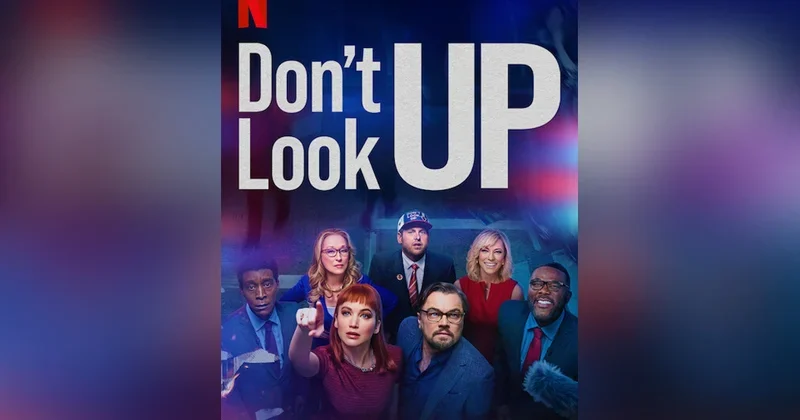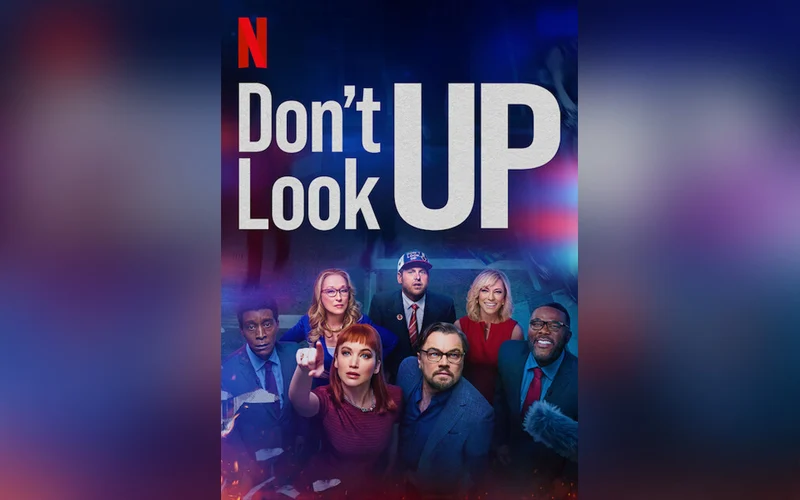

Some of you may remember Adam McKay’s movie Don’t Look Up. Wikipedia describes it an “apocalyptic political satire black comedy.” The film starred Leonardo DiCaprio, Jennifer Lawrence, Rob Morgan, Jonah Hill, Tyler Perry, Timothée Chalamet, Ron Perlman, Cate Blanchett, and Meryl Streep. If you haven’t seen it yet, it is definitely worth your time.
Here is the Netflix trailer:
This week at the magazine Current Affairs, editor Nathan Robinson talks about the movie and its legacy with McKay. Here is a taste of the interview:
Robinson: Well, as you say, one of the reasons you pissed off critics is because the criticism of the media in the film is pretty strong. And you and I have talked before about how there needs to be a real front page, one organized as if ordinary moral priorities were actually applied to how you prioritize the news. Because when you start critically examining a paper like the New York Times, it’s true that on a very superficial level, it looks like a newspaper and there’s some news in it, but when you start flicking through it, you notice that on page A12, there’s always some story that says, “and scientists warn that the collapse of the ice shelf is even closer than we thought before,” and then all the warnings are them screaming, as the scientists do in the film, as much as they can in print. This is buried in the back of the paper, and the New York Times has still refused to even stop carrying fossil fuel ads. They still won’t make that pledge.
McKay: They’re even worse than that. They did a whole greenwashing podcast, I think it was for Chevron. They’re utterly craven. At one point in the last year, I started saying, it’s dangerous to read the New York Times. I’ve had several conversations with people who consider themselves well-informed because they read the Times, or they listen to that Daily podcast, and who were traveling to places that were in the midst of a climate disaster. I had one family member who, a couple of years ago, was going to Japan, and I said, they’re in the midst of a really nasty heat wave [note: over 15,000 people were hospitalized due to the 2022 Japan heat wave], and there’s a typhoon headed to Japan, and the family member said, what are you talking about? No, there’s not. And I’m like, look, just do me a favor, and please look it up.
And the unsaid part of it was that they read the New York Times, and it was barely mentioning it. Sure enough, the family member goes to Japan. The typhoon hits, and they’re stuck in their hotel room for two days. Now, they were okay. But then I have the same thing with a family member going to Greece during those fires. Every exchange, I say, are you aware of the big fires that are going on in Greece? And every change is the same. You can tell they’re like, oh, Adam’s extreme about the climate. And I’m like, whatever, but please look up these fires that are going on. That’s really the experience.
Not only is the collapse of our news media actively putting people in danger, but for those of us who for years have been trying to advocate and inform, it’s made us look crazier and more extreme. We just cite actual events. We post videos of the event happening. We post Berkeley or Earth Systems data. And yet, still, these brands still hold that old respect from years ago, and it’s really actively dangerous. The craziest was that we didn’t even hide it. Really, the “Daily Rip” in Don’t Look Up is “Morning Joe,” and in the middle of Biden’s fairly disastrous term, I heard that he loves “Morning Joe” and was watching it every day. And I just thought, oh no.
Robinson: Yes. As I said, one of the things that unfortunately has to make you kind of pessimistic is that you might think that, when climate change was still in the future, people couldn’t see the consequences, and the denial was possible to maintain. But now, as these things accelerate, surely we’ll have to confront it because it’ll be right in front of our eyes.
Turns out that’s not true. What if in the movie you had a paper like the Times that just treated it as if the comet wasn’t coming? Or you went to page B12, and it said, by the way, comet still on the way, going to destroy all life on Earth in 60 days? That’s the world we live in. It’s so bizarre and perverse and monstrous to have that because it does make you want to scream. All the reviews of the movie were like, “Adam McKay is screaming at people.” It’s like, what do you do?
McKay: That’s the million dollar, or the eight billion people, question with climate. All these climate comms people like to say how you’re supposed to talk about it, but really, the only thing that’s been shown to sway people is disruptive protest and emotion. The one thing the neoliberal economic order cannot stand up against is emotion. But it’s clear at this point the New York Times and mainstream news—the Washington Post people barely even talk about anymore, it’s falling apart so much—seem very committed to reporting World War Two as a series of one-off incidents where angry boaters on Normandy beach confronted armed German tourists, and it seems like their plan is just to report each disaster as a disaster and never tie it together.
Robinson: Oftentimes, you’ll read a story about a wildfire or a massive drought, and the context of it, or why is this happening—climate change—isn’t even in the story.
McKay: Over the last 40 years, the markets, financialization, and industry kind of took over our culture. These institutions started promoting the people who asked the fewest questions. They started promoting the people who were focused on their own career. I’ve argued with people about this before: I think career is the ugliest word there is because it’s just like you and your story removed from the collective good. And I’ve always thought the real villain at the center of The Wire was careerism and a sort of tunnel vision. And so, yes, we’re really in a place where the people in charge of these institutions, the people walking the depths, so to speak, of these institutions, have been promoted precisely because they’re incapable of asking big questions, challenging policy, challenging their boss, and looking at their own incentives in a critical, self-aware way.
Read the entire interview here.
Current gave it a review, too: https://currentpub.com/2022/01/10/look-up-and-look-out/